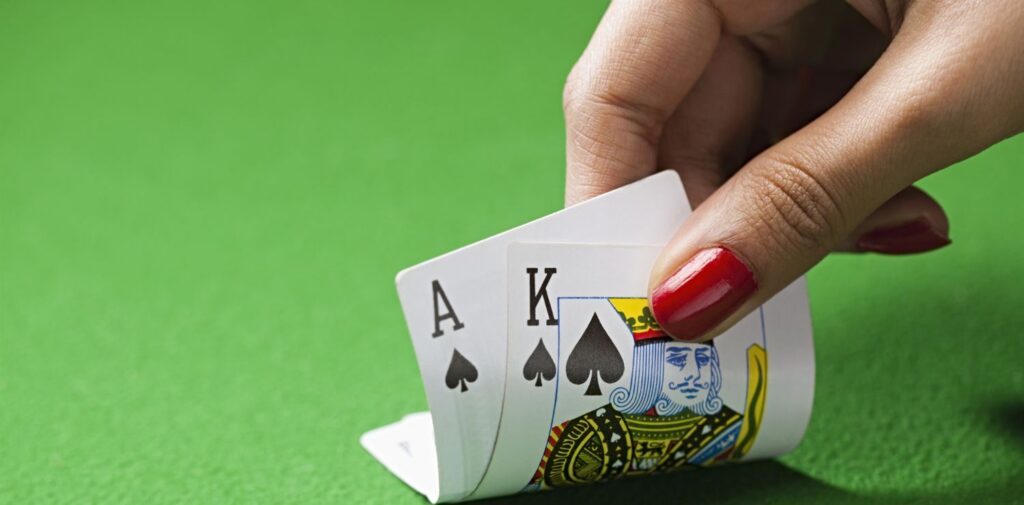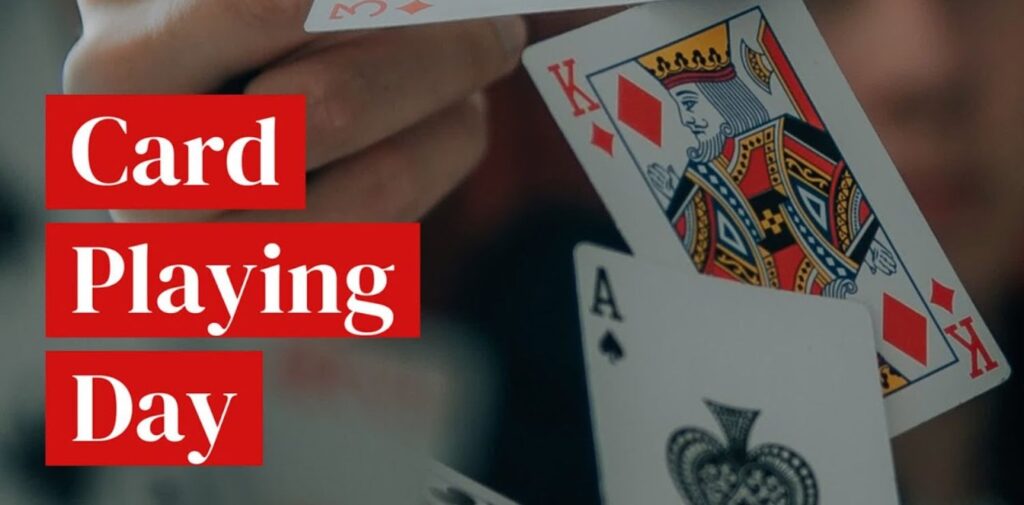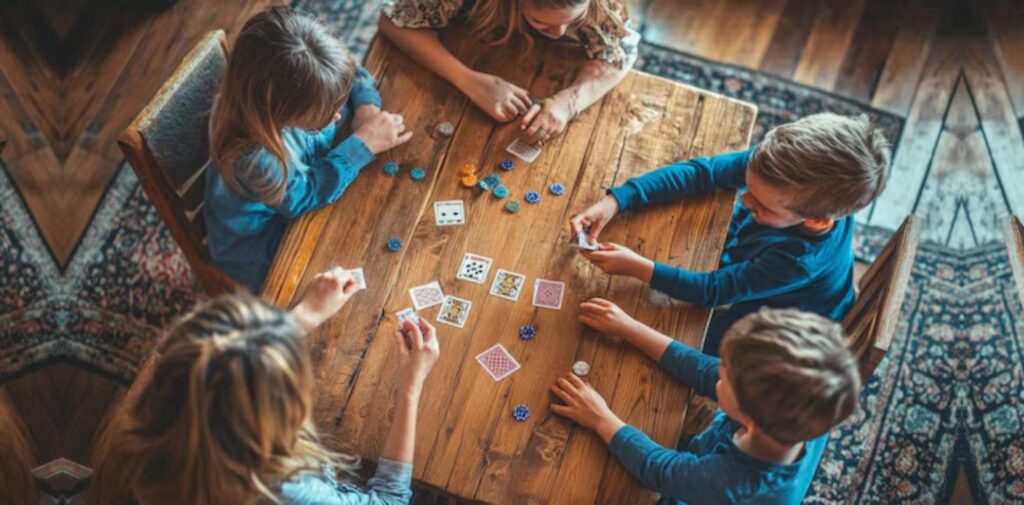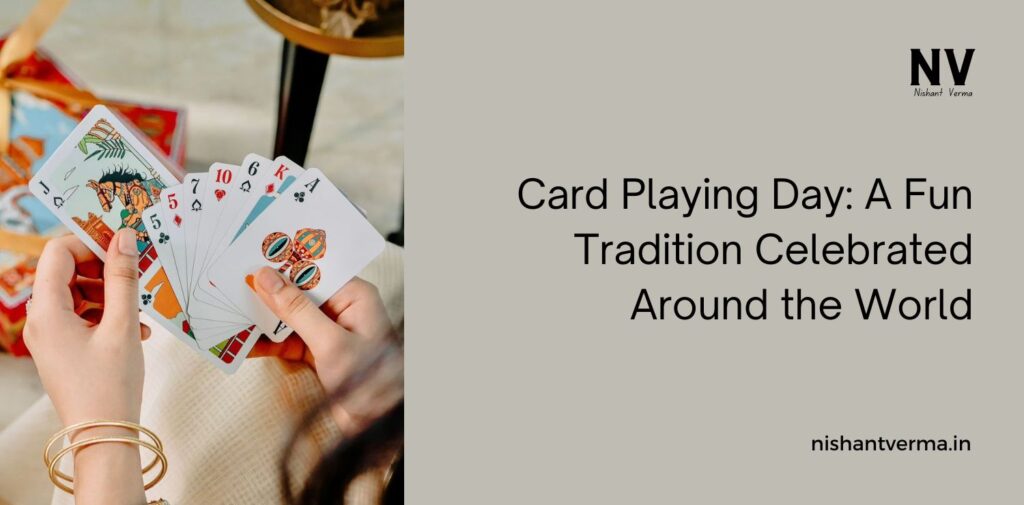Card Playing Day is a special occasion that celebrates the timeless fun of card games. While the date of Card Playing Day may not be widely known, it provides a perfect reason to enjoy some of the oldest and most popular games in the world. Card games are a beloved tradition in homes, social gatherings, and festivals across the world. In India, card games have a deep cultural significance and are enjoyed by people of all ages. Whether played for fun or during festivals, card games hold a unique place in Indian traditions.
In this article, we’ll explore the importance of Card Playing Day, the history of card games, their significance in India, and how people can celebrate this day by indulging in some friendly card games with friends and family.
The History of Card Games
Card games have been around for centuries and have a fascinating history. The first known playing cards originated in China during the Tang Dynasty (618–907 AD). They spread across Asia and eventually reached Europe in the late 14th century. In Europe, the designs of playing cards were refined, and different cultures added their own unique styles. For example, the French created the familiar suits of hearts, diamonds, clubs, and spades, while the English introduced the concept of face cards like the king, queen, and jack.
Over time, card games became not just a pastime but also a way to socialize and connect with others. Today, there are thousands of card games, from simple ones like Rummy and Poker to complex ones like Bridge and Tarot.

Card Games in India: A Cultural Tradition
In India, card games are much more than just entertainment—they are a way of life. People of all ages and backgrounds enjoy card games, and they have become an essential part of social life, especially during festivals and family gatherings. Some of the most popular card games in India include:
- Teen Patti: Often referred to as Indian Poker, Teen Patti is a popular card game played with a standard deck of cards. It is commonly played during festivals like Diwali, where people gather to play this exciting game, often involving a bit of luck and strategy. Teen Patti is typically played with three cards, and the goal is to have the best hand according to the game’s rules.
- Rummy: Rummy is another favorite card game in India. It is a game of skill and strategy that involves forming sets and runs from a hand of cards. Rummy can be played by two to six players, and it is often a part of social gatherings. Indian Rummy, in particular, has gained popularity as an online game as well, with many people enjoying it on their smartphones.
- Bridge: Although less commonly played than Teen Patti or Rummy, Bridge is still a popular card game among enthusiasts, particularly in urban areas. It is a game of skill, strategy, and teamwork that involves four players divided into two teams.
- Solitaire: While Solitaire is typically a solo card game, it is very popular on computers and mobile devices. Many people in India enjoy this game in their free time, whether as a way to relax or challenge their problem-solving skills.

The Significance of Card Playing Day in India
Card Playing Day is an opportunity to celebrate the joy of card games and the social connections they bring. In India, where card games are an integral part of family gatherings and festive occasions, this day can have significant meaning. Here’s why:
- Socializing and Bonding: Card games bring people together. In a country as diverse as India, card games are a common thread that unites people from different backgrounds, regions, and communities. Whether it’s playing Teen Patti with friends during Diwali or a casual game of Rummy with family members on a lazy afternoon, card games are a way to bond and spend quality time together.
- Tradition and Culture: Card games are an essential part of Indian tradition, especially during festivals. During festivals like Diwali and Holi, it is common for families and friends to gather for a night of card games, often with small bets involved. Card games have been passed down through generations and are seen as a way to preserve family traditions and create lasting memories.
- Entertainment and Relaxation: In India, card games are a form of entertainment that people can enjoy without needing expensive equipment or complicated rules. All that is required is a simple deck of cards, and people of all ages can enjoy playing together. It’s a way to relax and unwind after a long day or week.
- Skill Development: Many card games require concentration, strategy, and decision-making skills. Games like Rummy and Bridge involve planning ahead, calculating odds, and remembering cards. These skills can be useful in real life, and playing card games can improve a person’s focus and memory.
- Celebrating Togetherness: In a world that is increasingly dominated by technology and social media, Card Playing Day offers an opportunity to step away from screens and engage in face-to-face interactions. It is a day to celebrate togetherness, encourage communication, and cherish moments of fun with family and friends.

How to Celebrate Card Playing Day
Card Playing Day is a wonderful excuse to gather your loved ones and indulge in some friendly card games. Here are some ways to celebrate this day:
- Host a Card Game Tournament: Organize a friendly card game tournament at home or in your community. You can play popular games like Teen Patti, Rummy, or even Poker. Consider offering small prizes for the winners to make the event more exciting.
- Try a New Card Game: If you’re already familiar with the traditional Indian card games, why not try a new one? Learn how to play Bridge, Spades, or Hearts—games that are played all over the world. You can also try online card games or apps that offer a variety of games to explore.
- Play Cards with Family: One of the best ways to celebrate Card Playing Day is by sitting down with your family and playing together. Whether it’s a casual game or a more competitive match, playing cards with loved ones can create lasting memories and deepen your bond.
- Teach Kids How to Play Cards: Card games can be a great way to teach kids about strategy, patience, and fair play. Spend some time teaching children simple games like Solitaire, Snap, or Go Fish, and explain the importance of good sportsmanship.
- Celebrate Online: If you can’t meet in person with friends and family, you can still celebrate Card Playing Day online. Many websites and mobile apps offer the chance to play card games virtually with people from all over the world. You can organize a virtual card game session with friends or family members who live far away.
- Support Card Game Communities: In some parts of India, card games have become organized events, such as tournaments or clubs. On this day, you can support your local card game community by attending a live event, participating in tournaments, or even donating to organizations that promote card gaming as a sport.
Conclusion
Card Playing Day is a wonderful occasion to celebrate the timeless tradition of card games and the joy they bring to people’s lives. In India, where card games have been an integral part of festivals and family traditions for centuries, this day can remind us of the power of connection, strategy, and fun that cards offer. Whether you’re playing Teen Patti with friends, Rummy with family, or learning a new card game, this day is a reminder of the simple joys of life and the importance of spending quality time with those you love.
So, gather your cards, invite your family or friends, and celebrate Card Playing Day with a friendly game or two!




